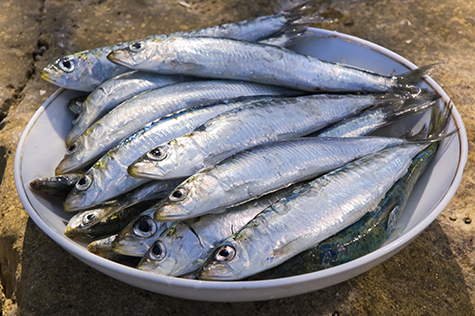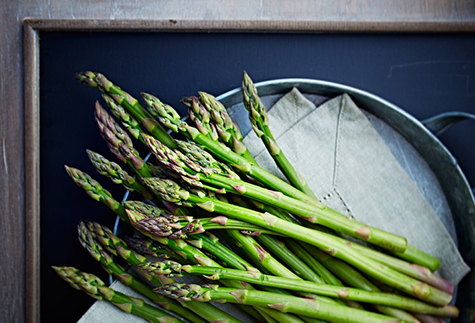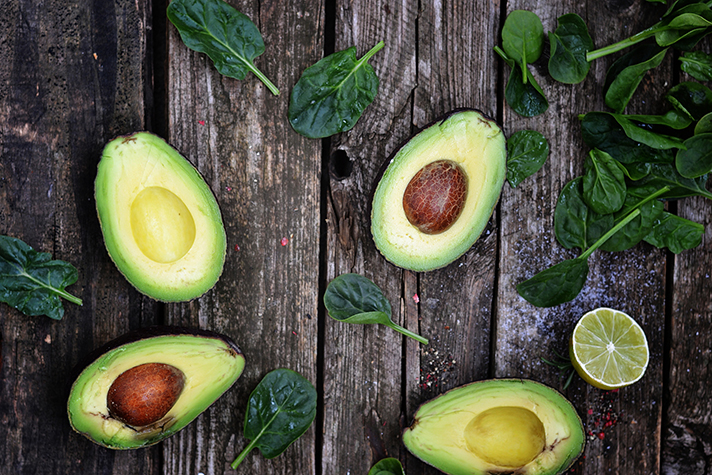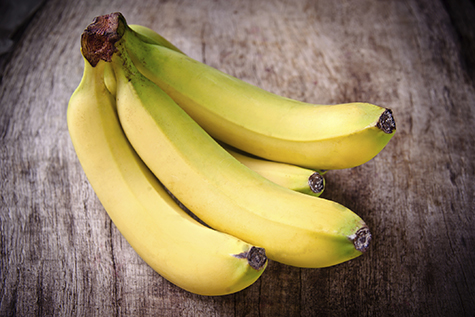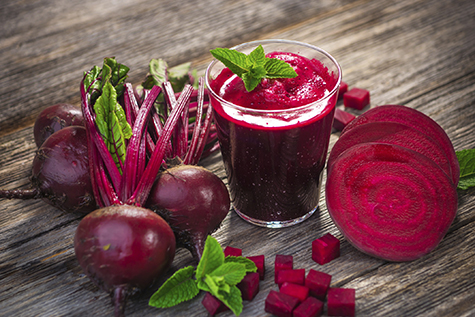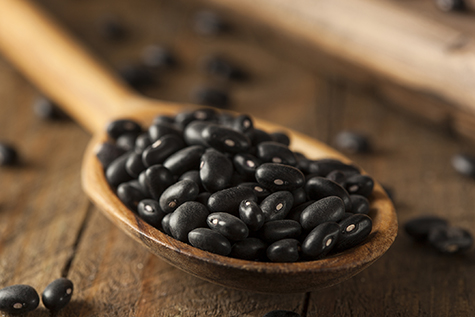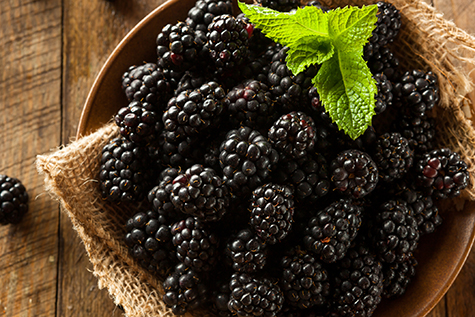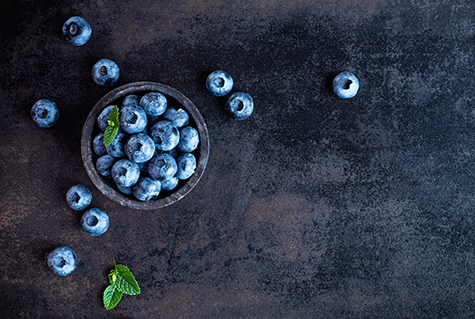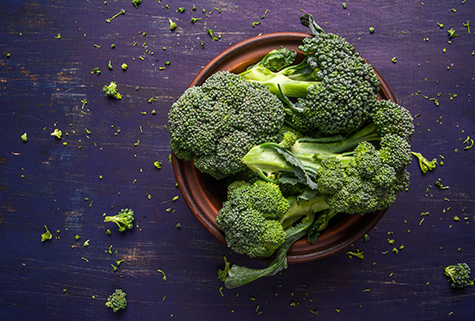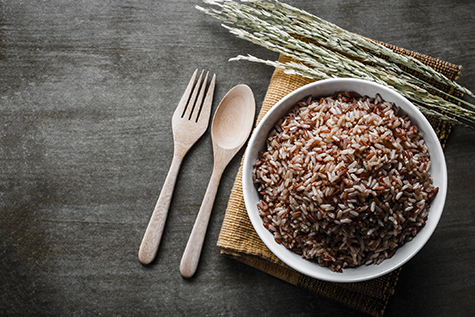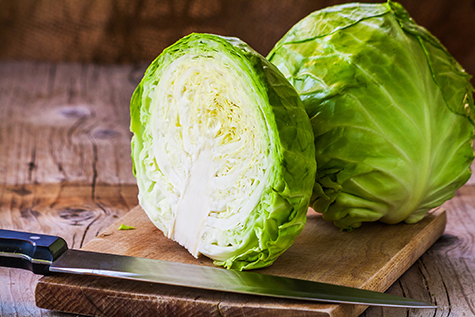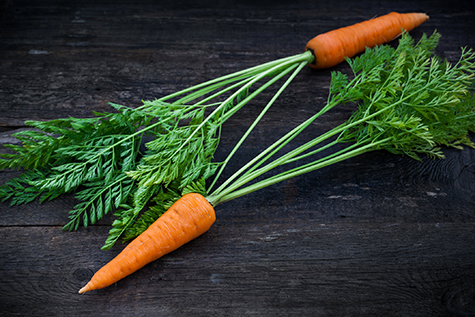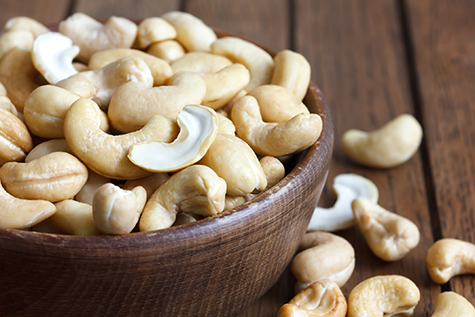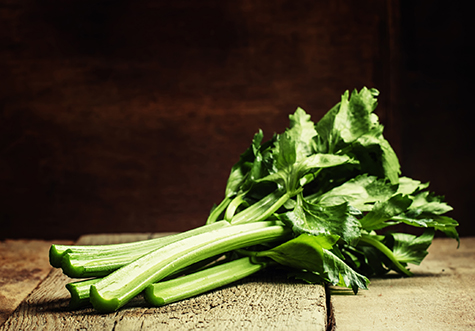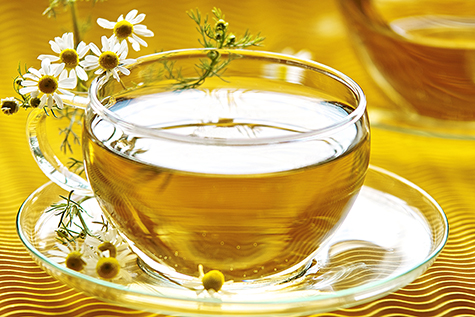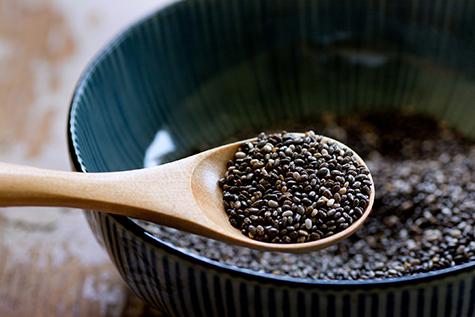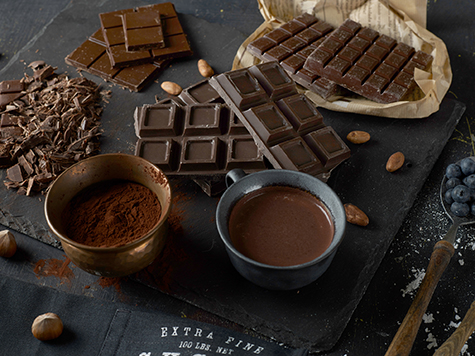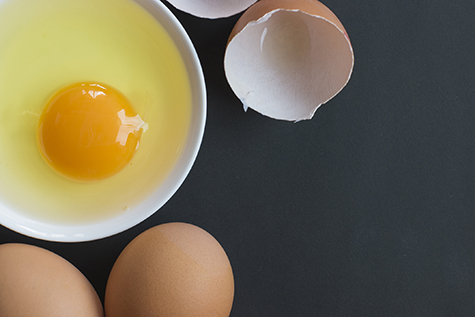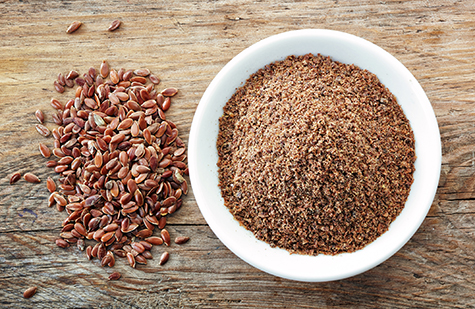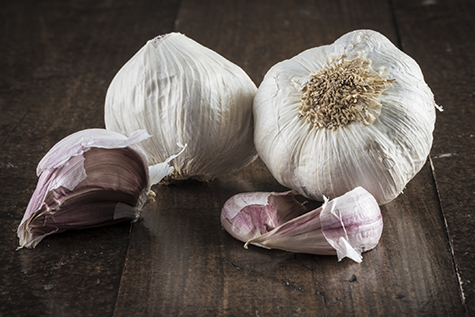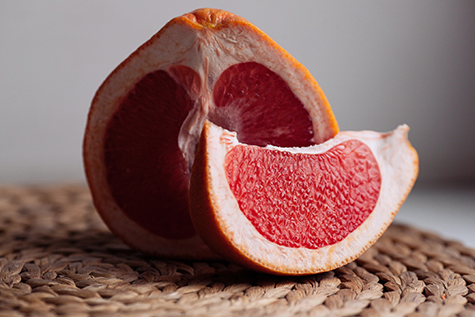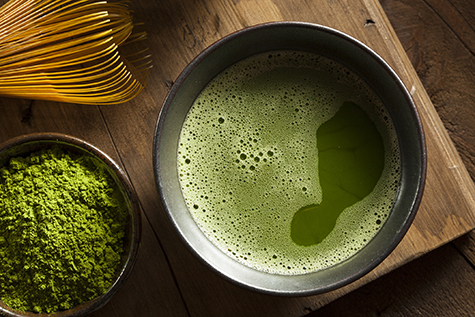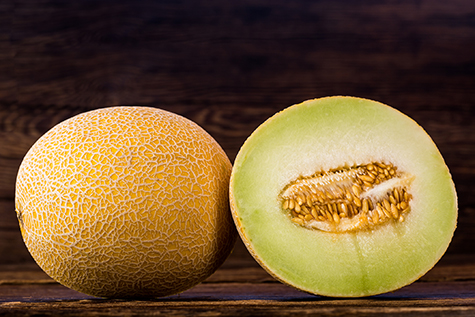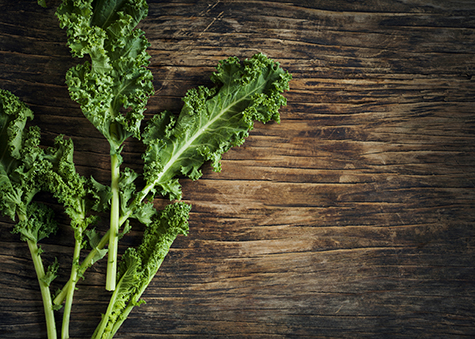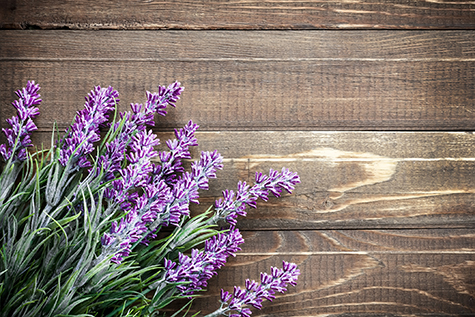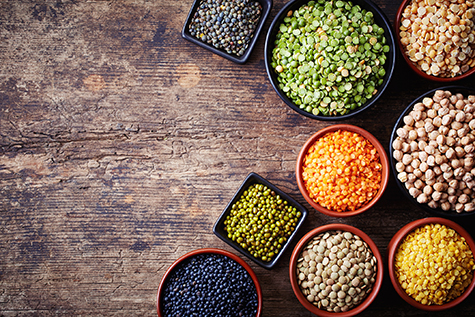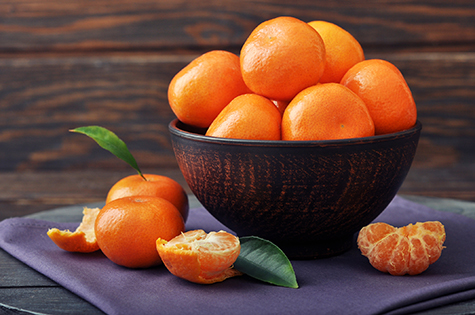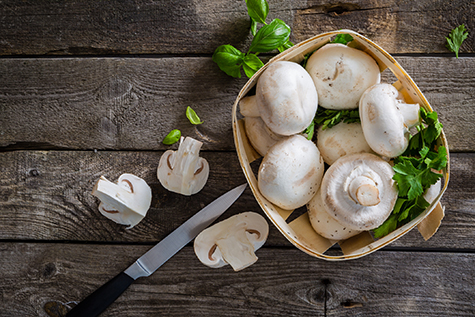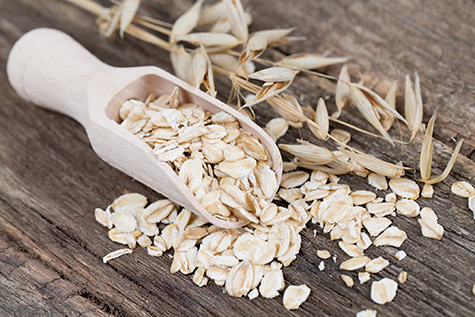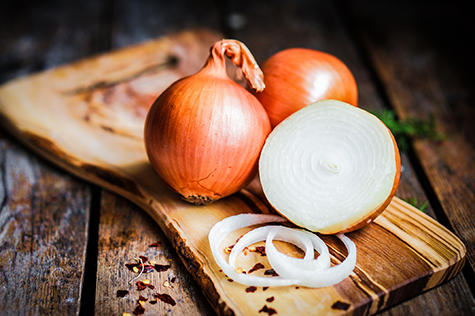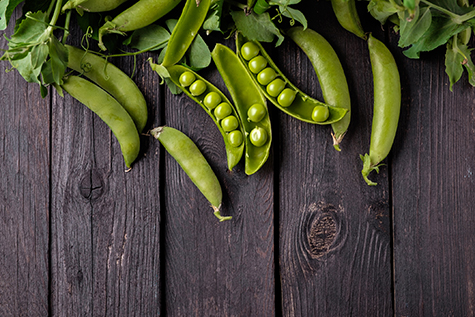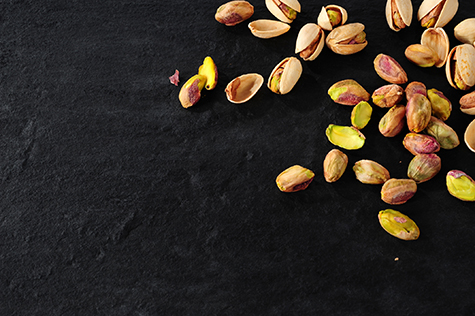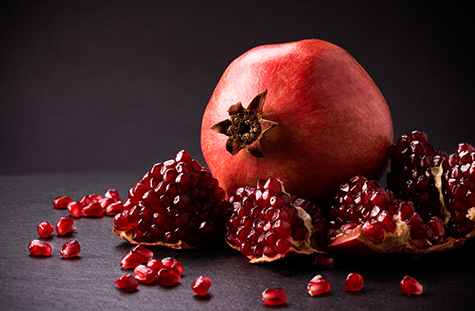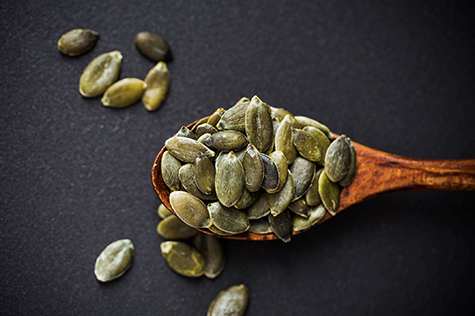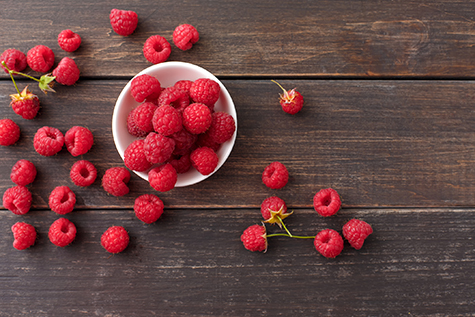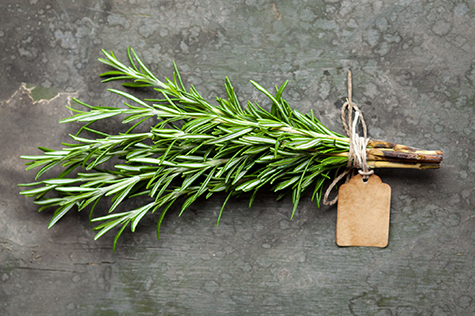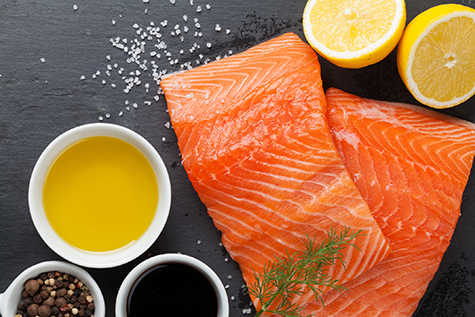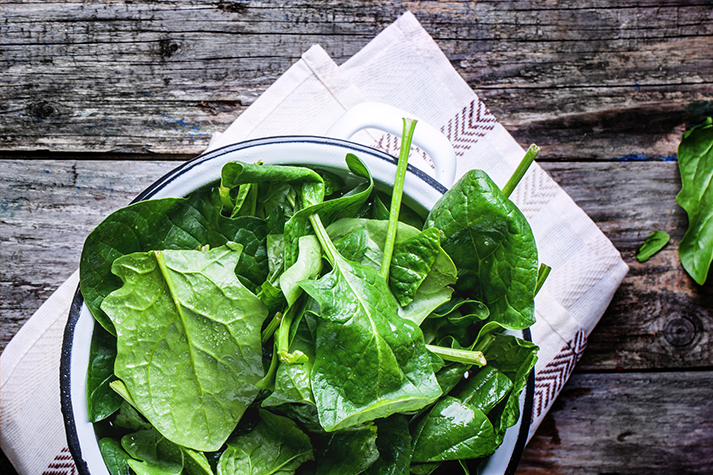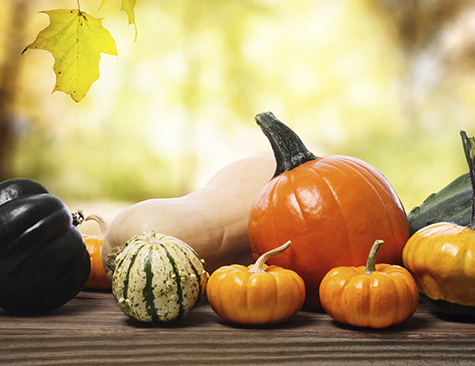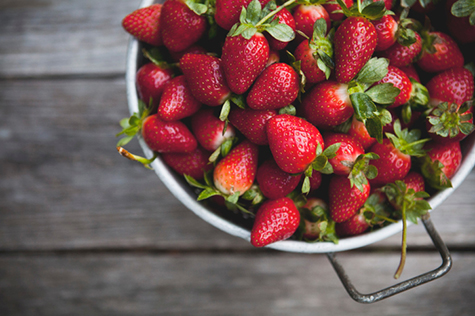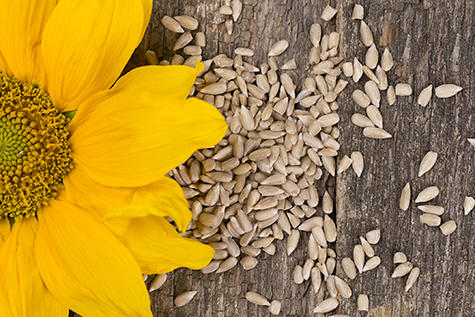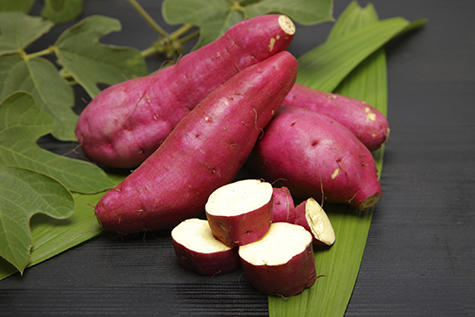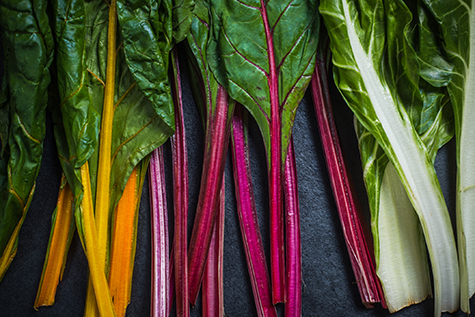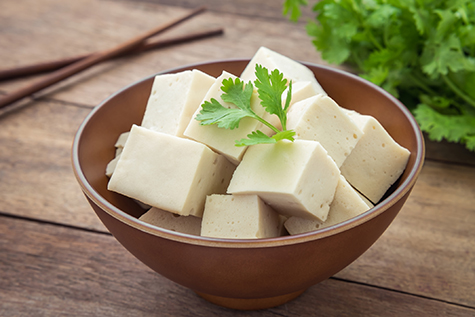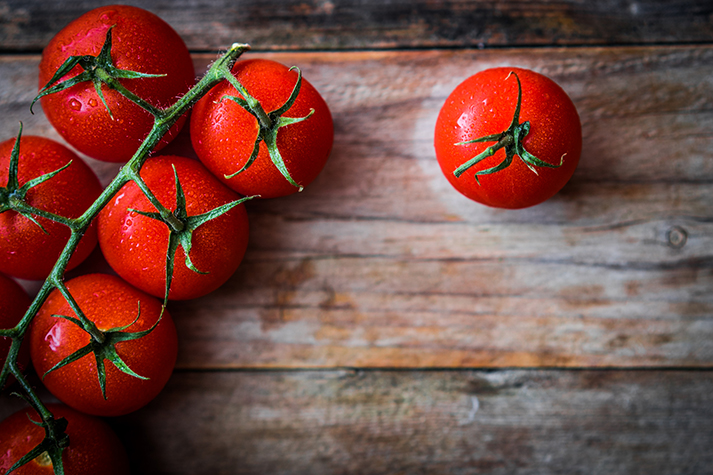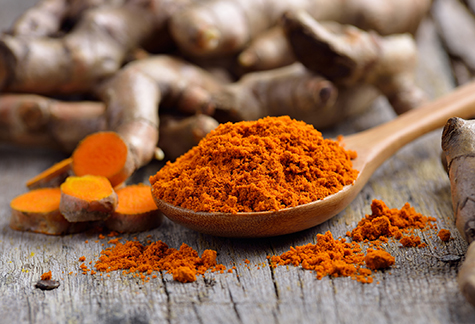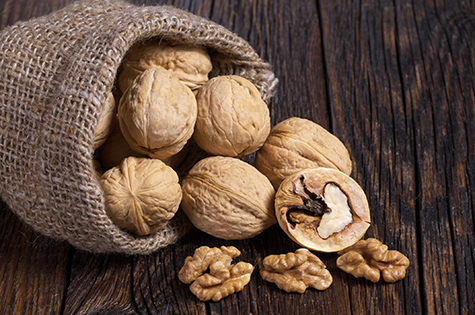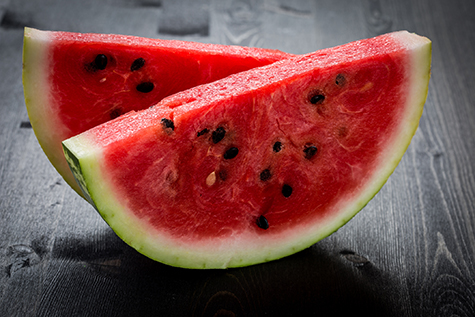Top 50 Foods To Relieve Stress and Anxiety


Did you know that the foods we eat actually play a role in the way we feel mentally?
Foods rich in nutrients like magnesium, potassium, zinc, B-vitamins, vitamins C, E, omega-3 fatty acids and amino acid tryptophan can help the body process anxiety-producing hormones and calm the body reducing incidences of stress, anxiety and depression. Here is the ultimate FoodTrients® list of the top 50 foods for stress and anxiety. 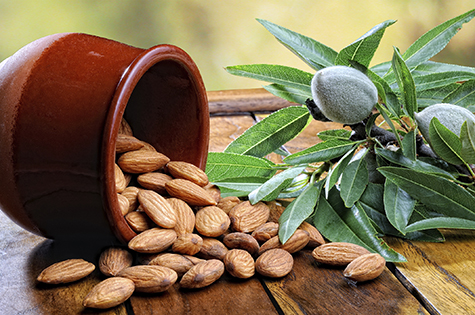
1. Almonds
Even a small portion of these nuts is packed with healthful plant sterols, fiber, and immune boosting vitamin E and B-vitamin riboflavin. During times of stress and anxiety (and during changes in the seasons where you may be indoors more often), including immune supporting nutrients in the diet can help reduce stress on the body and fight off disease.
2. Anchovies
Rich in omega-3 fatty acids, foods like anchovies and other cold-water fish have been linked to a reduction in inflammatory markers as well as a reduction in depression and anxiety symptoms. A 2011 study on 68 healthy medical students found that increasing omega 3s in the diet reduced anxiety symptoms by 20 percent when compared to a placebo group.
3. Asparagus
Asparagus contains nutrients including vitamin K, folate and unique antioxidant asparaguisic acid for anti-inflammatory support. Depression has been linked in some studies to low levels of folic acid so eating foods rich in this B-vitamin can help alleviate symptoms and adjust nutrient levels in the body.
4. Avocado
Avocados are packed with brain boosting vitamins B5/pantothenic acid and B6 to support the neurological system. Avocados are also a rich source of fiber, heart healthy monounsaturated fats and blood pressure lowering potassium so regularly consuming this creamy fruit can help calm the body in several ways.
5. Bananas
Bananas are absolutely packed with B6 (1/4 of the daily requirement in one serving), a critical nutrient in reducing anxiety in some people. Studies have shown that increasing B6 is helpful in relieving premenstrual anxiety symptoms in women. A great pre- or post-workout snack, bananas contain electrolytes like potassium to help you replenish.
6. Beet Juice
Beets, their juice and also their greens contain anti-stress compounds. Beet greens are rich in the B-vitamin riboflavin. Beets contain a unique type of phytonutrients called betalains which may contribute special anti-cancer properties. Beet juice specifically is a source of nitrous oxide which serves multiple functions related to increased blood flow and gas exchange by the blood. Often used in athletes to enhance performance, sip on beet juice any time for a calming effect.
7. Bell Pepper
Colorful peppers are rich in vitamin C – even more so than citrus in fact! They are also packed with nutrients that support neurological function that may help support anxiety and stress including B6, folate, and pantothenic acid. Versatile, use bell peppers in breakfast scrambles, stir fries, soups and stews, as a steamed side dish or a snack for dipping.
8. Black Beans
Packed with anxiety-reducing nutrients like potassium, magnesium, and folate, black beans also contain tons of fiber and protein to support proper nutrition, the immune system and gut health. Studies show that black beans can help lower blood pressure. All beans are healthy and contain important vitamins and minerals, but black beans have the added benefit of unique anthocyanin antioxidants including petunidin, delphinidin, and malvidin.
9. Blackberries
Swap sugary desserts that can send anxiety through the roof as stress hormones surge with calming, nutrient rich blackberries while they’re still in season. Blackberries are packed with antioxidants that help combat stress and support the immune system like vitamin C in addition to some potent calming antioxidants like quercetin and anthocyanin.
10. Blueberries
Similar to other berries, blueberries are full of antioxidants called anthocyanins that may exert an anti-inflammatory effect. They are also packed with vitamin C and folate to help boost the immune system as well as lower homocysteine, a lab closely related to stress that can negatively affect the heart at chronically high levels.
11. Broccoli
Cruciferous vegetables like broccoli (and Brussels sprouts, kale, cabbage and cauliflower) contain stress-busting vitamins and minerals as well as unique compounds that aid in the body eliminating stress hormones. Broccoli contains liver detoxifying sulfur-containing glucosinolates that contribute to this benefit.
12. Brown Rice
Rich in minerals like manganese, selenium and phosphorous, this nutty-flavored whole grain is also high in anxiety-reducing minerals like magnesium and B-vitamins. If you don’t care for brown rice and prefer white, try mixing them together as you adapt your taste preferences. Bonus, brown rice is much higher in fiber than it’s processed white variety!
13. Cabbage
Another cruciferous vegetable, any color cabbage contains liver detoxifying compounds that can help modulate hormones that increase stress and anxiety. Cabbage is also rich in stress controlling vitamins and minerals and has been linked to reductions in cardiovascular disease and diabetes risk. So versatile, include purple, red and green cabbage in salads, soups, and side dishes like coleslaw daily.
14. Carrots
Both carrots and carrot juice are rich sources of antioxidants like beta-carotene and vitamin A as well as immune boosting vitamin C and stress calming B-vitamins. Get creative with carrots eating them both raw or cooked as a snack, side dish, juiced, in a smoothie or even incorporated into a dessert.
15. Cashews
These tree nuts are rich in vitamins, minerals and fiber, like all nuts, but they are particularly rich in zinc which can benefit both anxiety as well as depression. Studies have found that depression is associated with a lower concentration of zinc in the blood so consuming zinc-rich foods is important for wellness.
16. Celery
This crunchy snack is packed with B-vitamins and body calming minerals like potassium and magnesium. Studies have found that compounds in celery called phthalides can act as smooth muscle relaxants, allowing blood vessels to expand resulting in lower blood pressure – good for the cardiovascular system and relaxation.
17. Chamomile Tea
A cup of any type of tea may feel calming and relaxing but there is evidence specifically on chamomile and how it reduces general anxiety disorder. When compared to a placebo in studies, there was a significantly greater reduction in anxiety score during chamomile therapy. Brew a cup for an affordable, simple, delicious way to seek calm.
18. Chia seeds
With one of the highest fiber contents out there, tiny chia seeds add about 5 grams per tablespoon which is supportive of the cardiovascular system and may help manage weight. They are also a rich source of protein, including the amino acid tryptophan, and healthy omega-3 fatty acids which offer calming, anti-inflammatory properties to help soothe the body.
19. Chocolate
Though chocolate contains caffeine which can increase anxiety in some people, it also contains some compounds that help combat stress and anxiety, lowering blood pressure and enhancing feelings of calm. For maximum benefit, skip milk or white chocolate and aim for 70% or higher cocoa content which contains antioxidant flavonols. Bonus, chocolate is a rich source of magnesium.
20. Eggs
Make sure to eat the whole egg for health, nutrition and mood support. Yolks of eggs contain significant amounts of protein, zinc, choline, and vitamins A and D. Buy omega-3 eggs for an added heart health bonus. Research remains mixed on vitamin D and depression though some have found that low levels of vitamin D are significantly associated with higher levels of depressive symptoms or with a depression diagnosis.
21. Flaxseed
These tiny seeds cannot be broken open by the body during digestion, so grinding them is the best way to get access to their health effects. Full of fiber, phytochemicals called lignans, and calming omega-3 fatty acids and magnesium, add flax seeds to cereal, granola, muffins, and salads for stress support.
22. Garlic
This pantry staple contains an antioxidant called allicin which may help boost the immune system in times of stress and support key systems including the heart and blood vessels. A small study in the Journal of Translational Medicine found that eating foods like garlic can reduce acute stress symptoms.
23. Grapefruit
This classic morning citrus is a great way to start the day as we head into fall. Not only is it hydrating, it contains immune boosting vitamin C to support health even when it’s under attack from increased stress with back to school and work this fall.
24. Green Tea
Refreshing green tea contains powerful antioxidants called catechins, known for cardiovascular support. The amino acid L-theanine in green tea may target relaxation and the reduction in stress. While the weather is still hot out, brew iced green tea for a refreshing summer beverage.
25. Honeydew Melon
Sweet, green honeydew melon makes a healthy snack that could in fact play a role in improving your mood as well. Vitamin C boosts the immune system in times of stress while a collection of B-vitamins support the cardiovascular and neurological systems.
26. Kale
Superfood kale is super in regard to stress and anxiety support, too. One cup provides nearly all of your vitamin C needs at 70% and all B-vitamins (aside from B-12 which are only found in animal foods). Kale is so nutrient rich, it also has potassium and magnesium which are calming to the cardiovascular system.
27. Lavender
The use of culinary lavender in cooking can be delicious and stress relieving. One study found that consuming herbs including lavender reduced acute stress in its participants. Make sure you have the culinary variety (not just the kind that grows in your yard) for safety and incorporate it in creative ways like infusing water, in baked goods, and salad dressings.
28. Lentils
Legumes like lentils are rich in fiber for satiety and weight control and B-vitamins for neurological support. In fact, one cup of lentils provides the vast majority of your daily folate needs at 90%. Include lentils on salads, in soups and pureed into a dip.
29. Mandarins
Commonly used as an essential oil that calms the central nervous system, mandarin is also supportive in food form. A perfect portable snack for back-to-school season, include mandarins in the diet for their nutrients as well as a little mood boost.
30. Mushrooms
All mushrooms contain a unique, immune boosting type of fiber called beta glucans which is helpful as the seasons turn and the body may experience increased stress. Rich in many vitamins and minerals, mushrooms contain high levels of calming potassium and B-vitamins.
31. Oats
The type of fiber in oats can help your heart by lowering LDL bad cholesterol and also stabilize blood sugars, calming hormones that can worsen anxiety. Slow burning complex carbohydrates like oats can boost soothing serotonin in the brain relieving stress, anxiety and insomnia.
32. Onion
Onions are another allium vegetable, like garlic, packed with the antioxidant quercetin which studies show support detoxification and cardiovascular health. Upregulating detoxification pathways in the liver can help rid the body of stress hormones that could otherwise build up in the body, worsening anxiety.
33. Peas
Green peas may be growing in your garden right now so harvest them to have as a snack or mix into a salad or stir fry to boost nutrition and possibly mood as well. Peas contain folate and other supportive B-vitamins that aid in clearing irritating homocysteine from the blood, supporting the cardiovascular system and reducing stress on the body.
34. Pistachios
Eating pistachios may reduce acute stress by lowering blood pressure and heart rate. Rich sources of antioxidants like vitamin E, these nuts can also boost the immune system. Pack them in individual sized portions for a healthy snack at school or work.
35. Pomegranates
Vibrant pomegranate seeds called arils are packed with immune boosting vitamin C. During times of stress and anxiety, the immune system can get kicked into overdrive so supporting it is key. Antioxidants like vitamin C have also been linked to supporting the mood and neurological function in some studies.
36. Pumpkin Seeds
Pumpkin seeds are great sources of magnesium, a mineral that has been linked to relaxation in the body and also improved sleep. Pumpkin seeds contain 600 mg of the amino acid tryptophan which converts to calming serotonin in the brain, supporting people with depression and anxiety.
37. Raspberries
Raspberries are rich in vitamin C which has been shown to be helpful in combating stress while supporting the immune system. Raspberries offer special antioxidants in the anthocyanin family that help reduce inflammation and irritation in the body.
38. Rosemary
Growing a rosemary plant in the garden is beautiful as well as fragrant but including it in cooking can also be stress relieving. A small study in the Journal of Translational Medicine found that consuming spices including rosemary reduced acute stress in its participants. Add fresh or dried rosemary to salad dressing, steamed veggies, rice or potatoes and soups for a calming, delicious flavor.
39. Salmon
Rich in minerals and healthy omega-3s fats, the American Heart Association recommends two servings of salmon per week for cardiovascular support but salmon may have even more benefit than heart health alone. Studies show that omega-3s may decrease inflammatory markers which can help the body adapt during times of stress or anxiety.
40. Spinach
Spinach is a versatile and delicious green leafy veggie packed with supportive nutrients like folic acid and vitamins K and A. Spinach is also rich in the relaxing mineral magnesium and is less bitter than other greens like kale. Blend baby spinach into smoothies, add to omelets, salads, and sandwiches.
41. Squash
Summer or winter, squash varieties are supportive of health. Yellow colored winter squash contains fiber and a variety of vitamins, minerals and antioxidants. Key players include beta and alpha-carotene, carotenoids that can act as antioxidants and support the immune system during times of stress and overwhelm.
42. Strawberries
Strawberries contain more vitamin C per serving than some citrus and including them in the diet has been linked to heart health and a boost in immunity. Chronic stress can hurt the immune system so as the weather turns colder, nab some late-season strawberries for a little boost of summer health.
43. Sunflower Seeds
These tiny seeds are rich in immune supporting vitamin E as well as a collection of B vitamins which can help reduce stress on the body and support neurological function. They are also great sources of magnesium which is associated with relaxation in the body.
44. Sweet Potato
Sweet potatoes contain many stress and anxiety supporting B vitamins. Like all types of potatoes, sweet potatoes are packed with vitamins and minerals. Some varieties are quite large in size so make sure to choose an appropriate portion when eating any potato – or share one with a friend.
45. Swiss Chard
Similar to beets, chard also contains the antioxidant betalain which has been linked to anti-inflammatory support and phase 2 detoxification in the liver. The liver processes many hormones including some that are linked to stress and anxiety so eating green leafy veggies that support the body’s natural elimination system are helpful to include in the diet.
46. Tofu
Soybeans are incredibly rich in riboflavin, also known as B2. There have been studies done on how the diets of women in different cultures affect both anxiety and depression. One large 2010 study found that after adjustments for age, socioeconomic status, education, and health behaviors, a traditional dietary pattern characterized by vegetables, fruit, meat, fish, and whole grains was associated with lower odds for major depression or anxiety disorders. Conversely, a “western” diet of processed or fried foods, refined grains, sugary products, and beer was associated with a higher score. Tofu and soybean products often are included in non-western diets.
47. Tomatoes
Yet another fruit that aids in cardiovascular health, tomatoes are packed with antioxidants vitamin C and lycopene (enhanced by cooking). Also rich in potassium for blood pressure control, tomatoes contain a number of B-vitamins shown beneficial for helping stress, anxiety and depression.
48. Turmeric
Turmeric root contains the powerful anti-inflammatory compound curcumin. A bright yellow spice, turmeric may help to fight inflammation and aid the body in adapting to stress. In a small study of 30 human subjects, patients who got the curcumin supplement saw a significant reduction in anxiety score than those who had a placebo.
49. Walnuts
These healthful nuts are packed with omega-3 fatty acids in the form of alpha-linolenic acid (ALA) in addition to minerals manganese and copper. Since not everyone wants to get their omega-3 fatty acids from salmon or anchovies, walnuts can be a great plant-based alternative. Omega-3s have been linked to decreasing inflammatory markers which can become elevated in times of stress. Bonus: eat the skin of this nut for more antioxidant phenolic acids, tannins, and flavonoids.
50. Watermelon
Watermelon is supportive to health with all of its vitamins, minerals and antioxidants. Like tomatoes, watermelon contains the antioxidant carotenoid lycopene as well as vitamin C and calming minerals potassium and magnesium which may help support the body in times of stress.
What are your favorite calming foods for back to school and work? Let us know in the comments!
Resources
Worlds Healthiest Foods Almonds. http://www.whfoods.com/genpage.php?tname=foodspice&dbid=20. Accessed 7/23/17.
Worlds Healthiest Foods Avocado. http://www.whfoods.com/genpage.php?tname=foodspice&dbid=5. Accessed 7/24/17.
Worlds Healthiest Foods Banana. http://www.whfoods.com/genpage.php?tname=foodspice&dbid=7 Accessed 7/24/17.
Worlds Healthiest Foods Bell Pepper. http://www.whfoods.com/genpage.php?dbid=50&tname=foodspice Accessed 7/24/17.
Worlds Healthiest Foods B2-Riboflavin. http://www.whfoods.com/genpage.php?tname=nutrient&dbid=93. Accessed 7/23/17.
Worlds Healthiest Foods Brown Rice http://www.whfoods.com/genpage.php?tname=foodspice&dbid=128 Accessed 7/27/17.
Worlds Healthiest Foods Cabbage http://www.whfoods.com/genpage.php?tname=foodspice&dbid=19 Accessed 7/27/17.
Worlds Healthiest Foods Celery http://www.whfoods.com/genpage.php?tname=foodspice&dbid=14 Accessed 7/28/17.
Worlds Healthiest Foods Chia and Flax http://www.whfoods.com/genpage.php?tname=dailytip&dbid=242. Accessed 7/28/17.
Worlds Healthiest Foods Pistachio http://www.healthiestfoods.com/pistachio/ Accessed 7/28/17.
Worlds Healthiest Foods Sunflower Seeds http://www.whfoods.com/genpage.php?tname=foodspice&dbid=57 Accessed 7/24/17.
Worlds Healthiest Foods Swiss Chard http://whfoods.org/genpage.php?tname=foodspice&dbid=16 Accessed 7/24/17.
Worlds Healthiest Foods Sweet Potato http://whfoods.org/genpage.php?dbid=64&tname=foodspice Accessed 7/24/17.
Worlds Healthiest Foods Tomato http://www.whfoods.com/genpage.php?tname=foodspice&dbid=44 Accessed 7/24/17.
Amsterdam JD, Li Y, Soeller I, Rockwell K, Mao JJ, Shults J. A randomized, double-blind, placebo-controlled trial of oral Matricaria recutita (chamomile) extract therapy of generalized anxiety disorder. Journal of clinical psychopharmacology. 2009;29(4):378.
Coppen A, Bolander-Gouaille C. Treatment of depression: time to consider folic acid and vitamin B12. Journal of Psychopharmacology. 2005;19(1):59-65.
De Souza MC, Walker AF, Robinson PA, Bolland K. A synergistic effect of a daily supplement for 1 month of 200 mg magnesium plus 50 mg vitamin B6 for the relief of anxiety-related premenstrual symptoms: a randomized, double-blind, crossover study. Journal of women’s health & gender-based medicine. 2000;9(2):131-9.
Domínguez R, Cuenca E, Maté-Muñoz JL, García-Fernández P, Serra-Paya N, Estevan MC, Herreros PV, Garnacho-Castaño MV. Effects of Beetroot Juice Supplementation on Cardiorespiratory Endurance in Athletes. A Systematic Review. Nutrients. 2017;9(1):43.
Esmaily H, Sahebkar A, Iranshahi M, Ganjali S, Mohammadi A, Ferns G, Ghayour-Mobarhan M. An investigation of the effects of curcumin on anxiety and depression in obese individuals: a randomized controlled trial. Chinese journal of integrative medicine. 2015;21(5):332-8.
Jacka FN, Pasco JA, Mykletun A, Williams LJ, Hodge AM, O’reilly SL, Nicholson GC, Kotowicz MA, Berk M. Association of Western and traditional diets with depression and anxiety in women. American Journal of Psychiatry. 2010;167(3):305-11.
Juneja LR, Chu DC, Okubo T, Nagato Y, Yokogoshi H. L-theanine—a unique amino acid of green tea and its relaxation effect in humans. Trends in Food Science & Technology. 1999;10(6):199-204.
Khan N, Mukhtar H. Tea and health: studies in humans. Current pharmaceutical design. 2013;19(34):6141-7.
Kiecolt-Glaser JK, Belury MA, Andridge R, Malarkey WB, Glaser R. Omega-3 supplementation lowers inflammation and anxiety in medical students: a randomized controlled trial. Brain, behavior, and immunity. 2011;25(8):1725-34.
Manchali S, Murthy KN, Patil BS. Crucial facts about health benefits of popular cruciferous vegetables. Journal of Functional Foods. 2012;4(1):94-106.
McCrea CE, West SG, Kris-Etherton PM, Lambert JD, Gaugler TL, Teeter DL, Sauder KA, Gu Y, Glisan SL, Skulas-Ray AC. Effects of culinary spices and psychological stress on postprandial lipemia and lipase activity: results of a randomized crossover study and in vitro experiments. Journal of translational medicine. 2015;13(1):7.
Messina V. Nutritional and health benefits of dried beans. The American journal of clinical nutrition. 2014 Jul 1;100(Supplement 1):437S-42S.
Howland RH. Vitamin D and depression. Journal of psychosocial nursing and mental health services. 2011;49(2):15-8.
SHARMA DS. Health Benefits of Spices (Review). International Journal of Scientific Research. 2016;4(9).
Stough C, Scholey A, Lloyd J, Spong J, Myers S, Downey LA. The effect of 90-day administration of a high dose vitamin B‐complex on work stress. Human Psychopharmacology: Clinical and Experimental. 2011;26(7):470-6.
Swardfager W, Herrmann N, Mazereeuw G, Goldberger K, Harimoto T, Lanctôt KL. Zinc in depression: a meta-analysis. Biological psychiatry. 2013;74(12):872-8.
